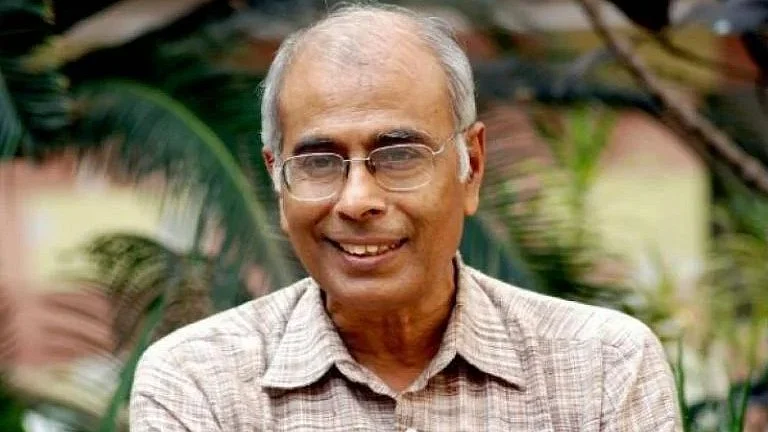Right-wing threat real: Court shifts defamation suits against Dabholkar’s son, scribes
The Sanatan Sanstha filed defamation suits in 2017 and 2018 in Ponda, Goa — where it is headquartered — against Hamid Dabholkar and a group of journalists

The Bombay High Court has deemed the threat perception expressed by Hamid Dabholkar — son of slain rationalist Narendra Dabholkar — and several journalists against the Goa-based right-wing group Sanatan Sanstha as "reasonable and genuine", and has ordered the transfer of defamation cases filed by the group to Maharashtra.
The Sanatan Sanstha had filed defamation suits in 2017 and 2018 at a court in Ponda, Goa — where the organisation is headquartered — against Hamid Dabholkar and a group of journalists. The suits alleged that the defendants had made false and defamatory remarks against the group, tarnishing its image.
In an order dated 3 September, made public on 4 September, Justice N.J. Jamadar permitted the transfer of these cases from Goa to Maharashtra, citing the interests of justice and the safety concerns raised by the defendants.
The petitioners had sought relocation of the trial, stating they feared for their lives if the proceedings remained in Goa, where the Sanstha reportedly has considerable influence.
They pointed to past killings of individuals critical of the group’s ideology, including Narendra Dabholkar, Govind Pansare, M.M. Kalburgi and Gauri Lankesh.
Justice Jamadar, in his order, stated, “If the animosity bordering on enmity between the Sanatan Sanstha and the applicants is considered, then the apprehension raised by the petitioners in their pleas are reasonable and genuine.”
“The command of dictate of justice would be better served if the suits are transferred from the court at Goa to a court in Maharashtra,” the judge further observed.
The High Court directed that the suits be moved to a court in Kolhapur district, located in south-western Maharashtra. However, at the request of Sanatan Sanstha, the court granted a six-week stay on the operation of the transfer order.
Referring to the verdict in the Dabholkar murder case delivered earlier in 2024 by a sessions court in Pune, Justice Jamadar noted that two individuals had been convicted and that the court had acknowledged the Sanstha’s staunch opposition to Dabholkar’s anti-superstition campaigns.
The High Court also observed that prosecution witnesses had established links between the convicts and the Sanatan Sanstha, and that credible evidence had shown the group had been deeply antagonistic toward Dabholkar, who was assassinated in Pune in August 2013.
The sessions court had further noted that despite a probe by the Central Bureau of Investigation (CBI), the identity of the mastermind behind Dabholkar’s killing could not be established.
According to Justice Jamadar, such findings were enough to validate the fears expressed by Hamid Dabholkar and journalist Nikhil Wagle, both of whom were named in the Sanstha’s defamation cases.
The court also noted that Hamid Dabholkar had been a prosecution witness in his father’s murder trial and remained an outspoken critic of the Sanstha’s ideology.
The killings of other public intellectuals and activists — Govind Pansare (February 2015), M.M. Kalburgi (August 2015), and Gauri Lankesh (September 2017) — who also opposed the same ideological lines, added further weight to the applicants’ concerns.
With PTI inputs
Follow us on: Facebook, Twitter, Google News, Instagram
Join our official telegram channel (@nationalherald) and stay updated with the latest headlines
